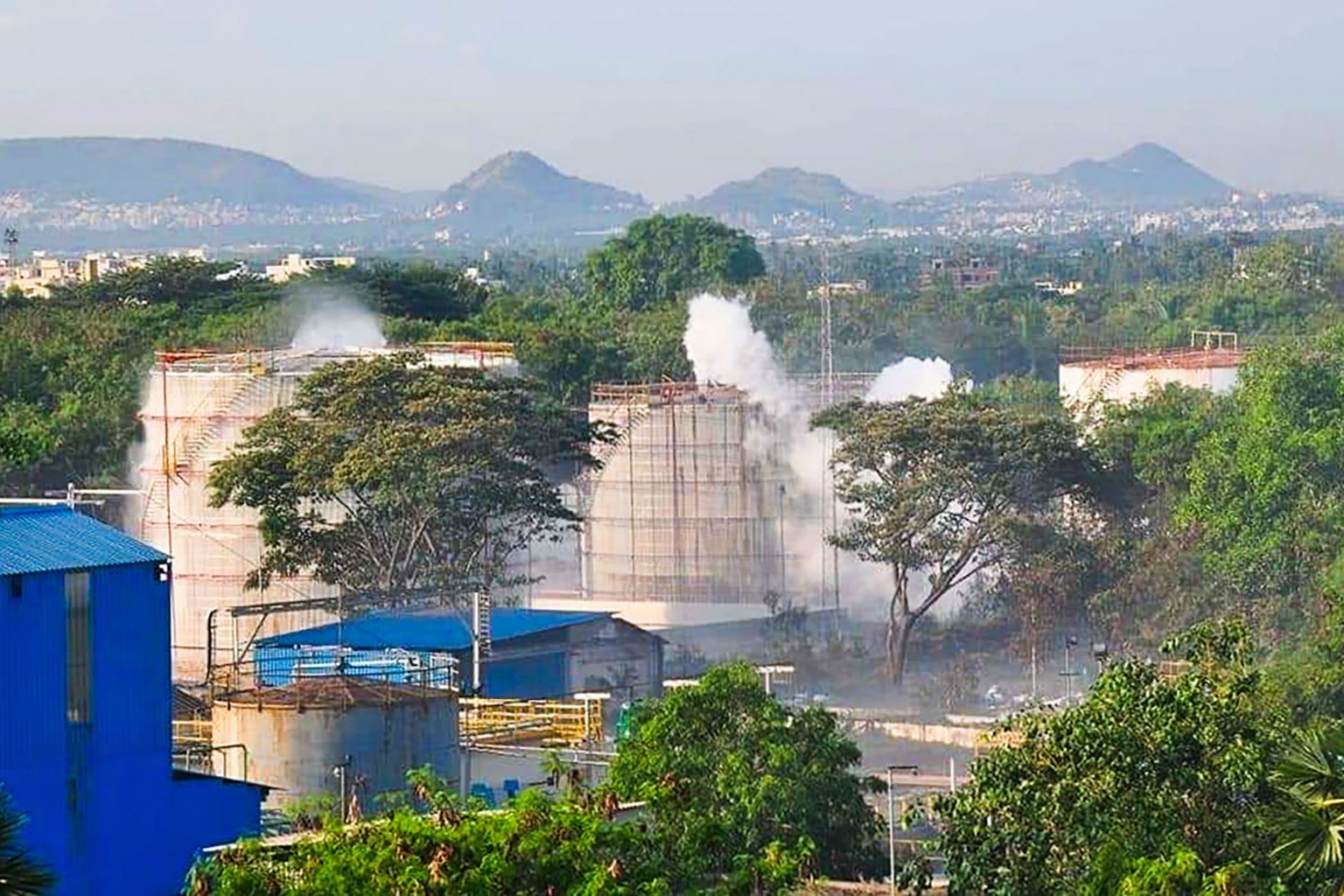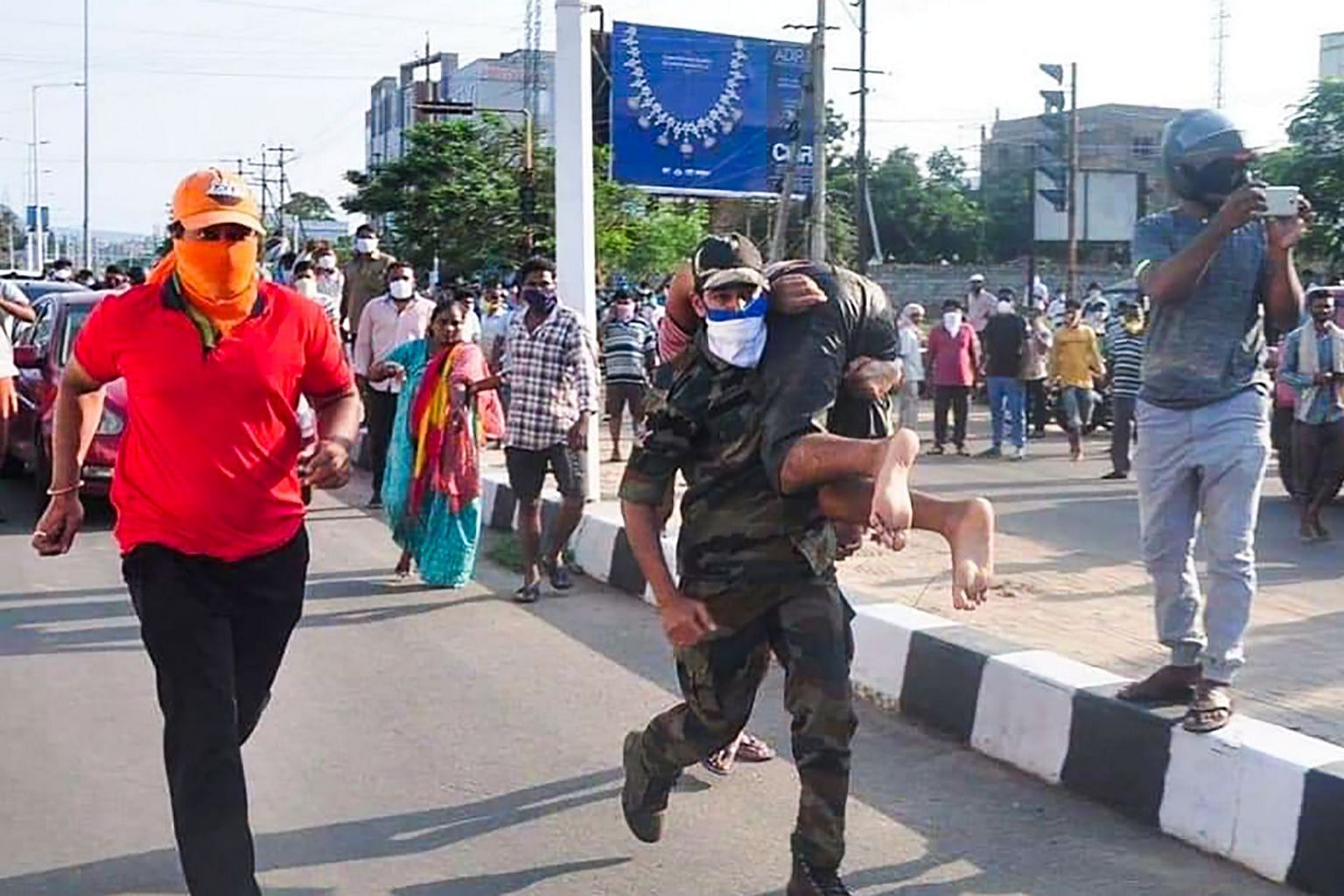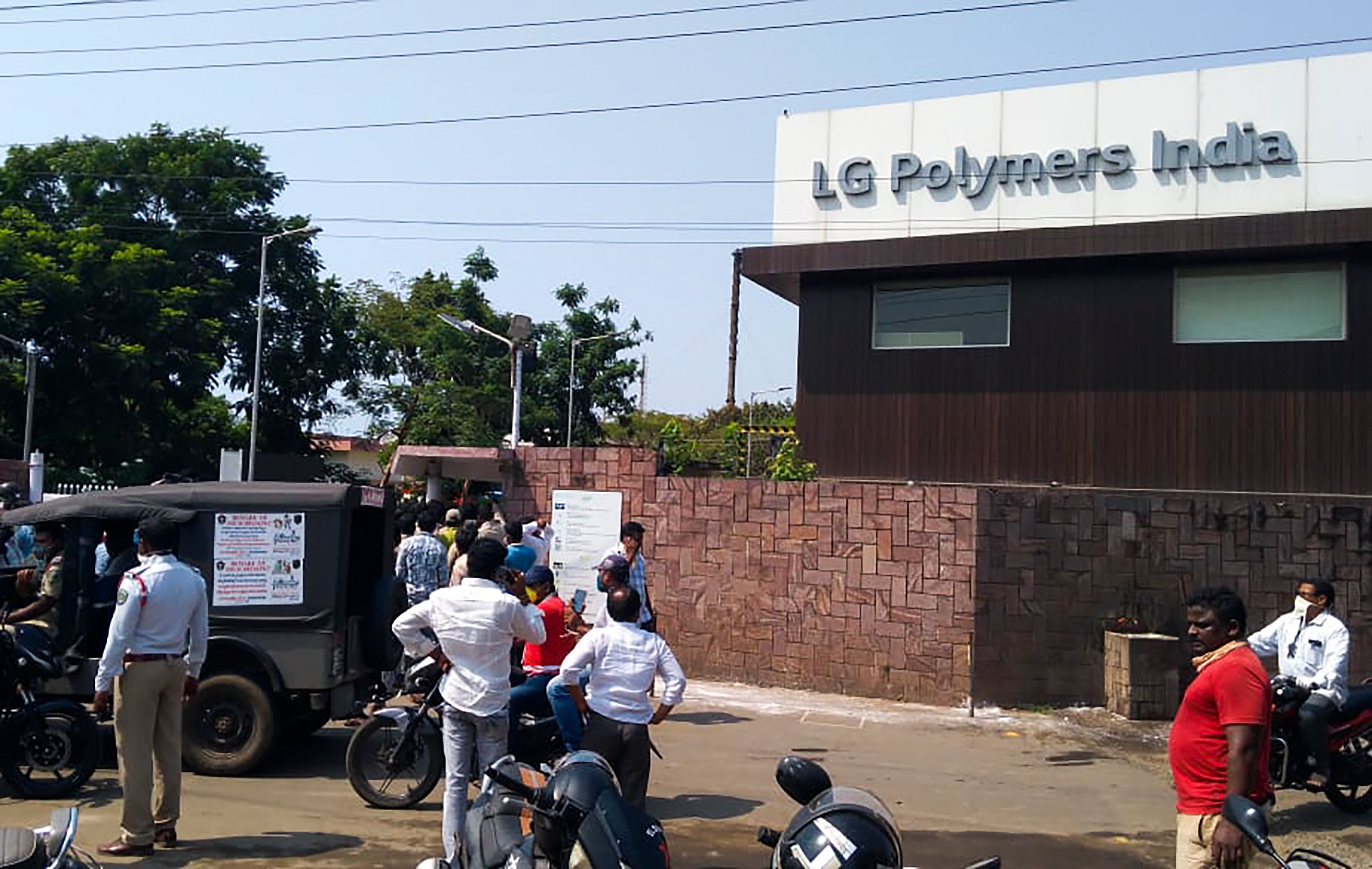8 dead, hundreds hospitalised after gas leak at South Korean plant in south India
Sign up now: Get ST's newsletters delivered to your inbox

Smoke rises from an LG Polymers plant following a gas leak incident in Visakhapatnam, on May 7, 2020.
PHOTO: AFP
Follow topic:
BANGALORE - Eight people have died and at least 300 have been admitted to hospitals on Thursday (May 7) after a poisonous gas leaked from a South Korean polymer plant near Vishakapatnam, a coastal city in Andhra Pradesh in India.
City officials said the LG Polymers India Pvt Ltd factory, situated near the densely populated Gopalpatnam, was trying to reopen this week after India eased its nationwide lockdown imposed on March 24 to prevent the spread of the Covid-19 pandemic.
Residents in the village of RR Venkatapuram near the gas plant reported waking up at 3am on Thursday with difficulty breathing, and with their eyes burning, officials said.
The gas has spread to at least 20 neighbourhoods nearby, they added.
Some residents speaking to local television channels described the gas as "mist-like". As they stepped outside, many could not bear the "stench of the gas" and collapsed on the street, they said.
Ambulances, fire engines, policemen and special chemical accident teams from the National Disaster Response Force are evacuating people who live near the area, and taking hundreds to hospitals nearby.
Visuals from the area show officials wearing masks carrying people struggling to breathe into ambulances and auto-rickshaws, with many families seen sitting on the road dividers waiting for more vehicles to arrive.
In a statement, LG Chem said the leak had been brought under control.
"We are currently assessing the extent of the damage on residents in the town and are taking all necessary measures to protect residents and employees in collaboration with related organisations," LG Chem, the owner of LG Polymers, said according to Reuters.

Established in 1961 in Vizag as Hindustan Polymers, the gas plant was bought in 1997 by South Korea's LG Chem. The factory makes polystyrene and expandable polystyrene, a plastic used to make packaging, toys and appliances.
Mr S.N. Pradhan, director-general of the National Disaster Response Force, has identified the leaked gas as styrene, a common chemical used in the plastic industry.
"But if the quantities of consumption are very high and the proximity is intense, then it can be lethal," said Mr Pradhan.
The effects of inhaling styrene include irritation of the skin, eyes, and upper respiratory tract. It can cause breathing difficulties, rashes, vomiting and unconsciousness.
The Assistant Commissioner of Police West Zone Vishakapatnam told Indian news channel News18 that the gas leaked from two 5,000-tonne tanks that had been left unattended since March, when the Covid-19 lockdown was imposed.
"It leads to a chemical reaction, and the heat was produced inside the tanks, which causes leakage," he said.

Policemen stand guard as people gather in front of a LG Polymers plant following a gas leak incident in Visakhapatnam, on May 7, 2020.
PHOTO: AFP
Prime Minister Narendra Modi called Andhra Pradesh Chief Minister Y.S. Jagan Mohan Reddy and inquired about the gas leak.
A statement from the state government said Mr Reddy had explained the incident and relief measures are underway.
Within hours of the leak, the Greater Vishakapatnam Municipal Corporation tweeted the maps of the "core and vulnerable areas" near the gas leakage.
Within hours of the leak, the Greater Vishakapatnam Municipal Corporation tweeted the maps of the "core and vulnerable areas" near the gas leakage.
It urged citizens to "move away from the accident place as soon as possible", use wet cloths to cover their nose and mouth, wash eyes if irritated, have "milk/ banana/jaggery to neutralise the effects of the gas", and reach out for medical help in case of breathlessness, vomiting or stomach aches.
Trains and road transport have been stopped around the area.
Thursday's leak has triggered memories of India's worst-ever industrial disaster in December 1984 in Bhopal, the capital of the central state of Madhya Pradesh.
A lethal gas leak in the pesticide factory of Union Carbide Ltd, now owned by the US-based Dow Chemical Company, killed about 4,000 people.
Over 500,000 survivors who were exposed to the leak continue to suffer long-term effects of the gas leak, like respiratory and kidney illnesses, hormonal imbalances and several forms of cancer.
The survivors continue to claim damages in the Indian Supreme Court 36 years after the incident.
A non-governmental organisation that works with the Bhopal survivors told The Straits Times that 15 of 17 people who have died of Covid-19 in Bhopal are gas leak survivors who were more vulnerable to the coronavirus due to their respiratory illnesses.

